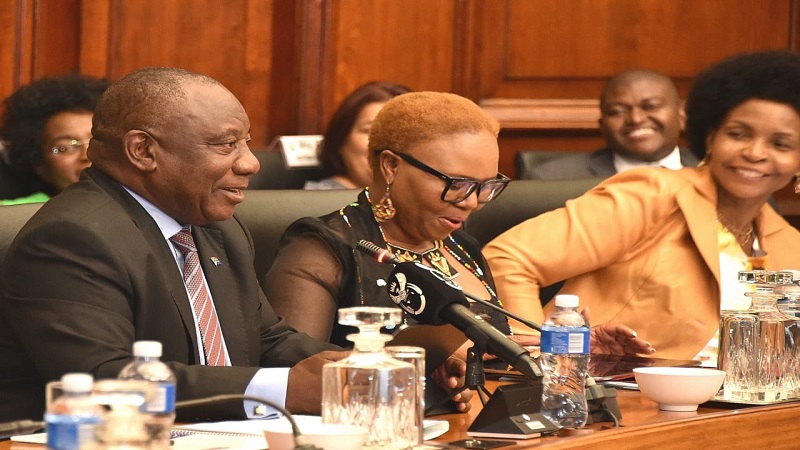Religious and interfaith leaders met with President Cyril Ramaphosa at the Union Buildings this week in a bid to a give a voice to the moral challenges facing the country. The Muslim Judicial Council, Jamiatul Ulama and the United Ulama Council of South Africa were among the Muslim organisations represented at the dialogue, which included a broad range of leaders from different faith denominations. The meeting aimed to work towards a path of “societal renewal” at a time when South Africa needs strong moral leadership. The Presidency said they hoped to develop positive values that “advance our country to the South Africa we want”.
The discussion focused on the current socio-economic challenges of unemployment, crime, gender-based violence and the loss of spirituality that underpins the moral crisis in South Africa. Ramaphosa called on faith-based leaders to increase their ministerial work as it gives hope to communities in distress.
“Given the extent of families being torn apart, our faith leaders are an immense source of hope for communities,” said Shaykh Ihsaan Taliep from the MJC, who attended the gathering.
Muslim organisations raised some pertinent topics such as the controversial Comprehensive Sexuality Education (CSE) curriculum. The Department of Basic Education will implement the CSE in 2020 – a curriculums that encompasses scripted lesson plans around sex education. The CSE has divided parents, educators and faith-based organisations due to the graphically explicit content that learners would be taught.
Taliep conceded that the CSE has elicited concern across spectrum but that society should not “put its head in the sand”. Minister of Basic Angie Motshekga was also in attendance at the gathering and said there had been “misinformation” around the CSE. According to the minister, the social media commentary on the CSE is far removed from the reality of the content and learning material which the department has in place.
Taliep called on the Muslim community to have a “balanced” approach to this contentious issue.
“There must be academic astuteness in terms of how we reconcile what the minister is saying and our perceptions (of the CSE) in the context of our society”.
The Muslim scholars were all in agreement that the president must prioritise the legal recognition of Muslim marriages. After a protracted legal battle, in August 2018, the Cape High Court ordered the government to enact legislation within two years that recognises Muslim marriages. The case is expected to return to the courts as national government appeals the ruling. The MJC will give support to the Women’s Legal Centre as amicus curiae (friend of the court), given its insight on the matter as a judicial body.
Maulana Yusuf Patel of the Jamiatul Ulama South Africa raised another contentious matter
Muslim leaders made an impassioned appeal to the president to make this dialogue part of a broader agenda towards societal renewal.
“We are all one community. The more we make distinctions between faith leaders and other leaders, we think that there’s a responsibility for some, and responsibility for others. The point is we have to all work together. As civil society, we must step up to the plate to ensure that government is held to account.”
The meeting concluded that a Compact would see the relationship between government and civil society foster cohesion.
VOC






 WhatsApp us
WhatsApp us 

